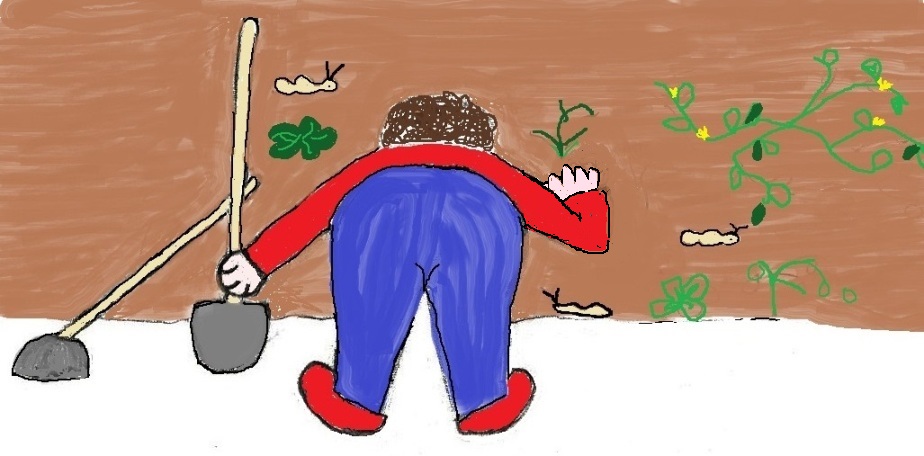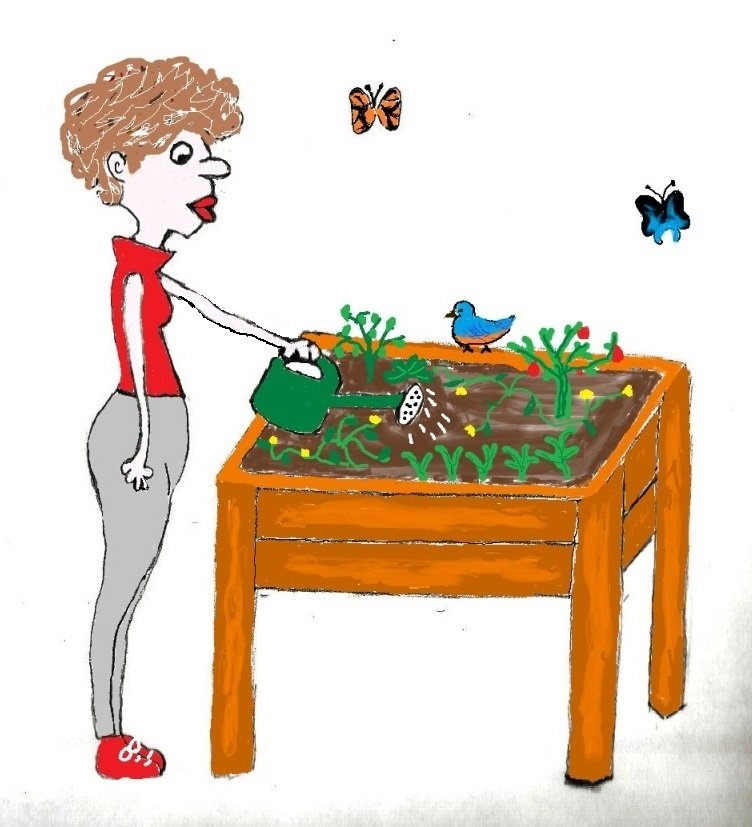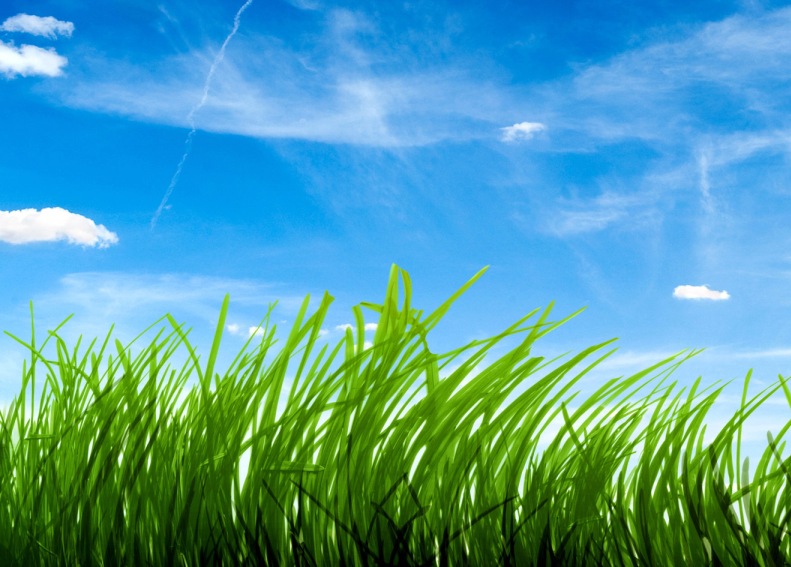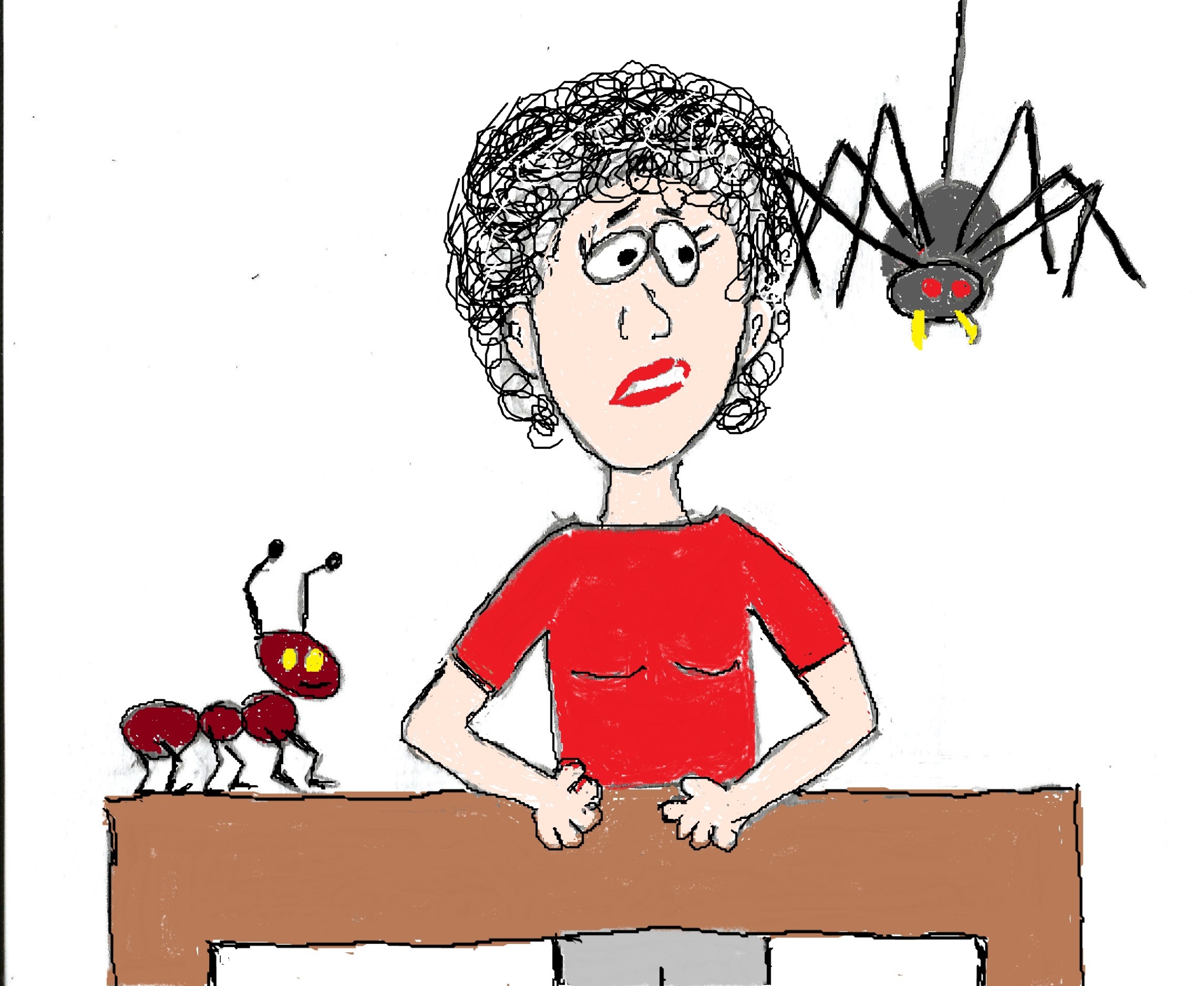- Home
- Non Toxic Food
- Home Organic Garden
The Easy Way to Start a Home Organic Garden
Growing a home organic garden full of healthy veggies and fruits can be a fun, economical way to add more organic produce to your diet. If you’re new to gardening, getting starting can be challenging, but there are lots of reasons to try. And if you’ve been thinking about starting a garden, I have found a great approach that makes it easy to grow a garden without pesticides.

Starting a home garden, especially an organic garden, can be a bit overwhelming. First there’s all that digging you have to do.
Then you have to learn about growing different plants and natural pest control. Organic gardening takes some extra research and trial and error to find the best ways to deter pests.
However, I want to give you two very good reasons why organic gardening is worth the effort. Then I'll give you an easy solution to growing a home organic garden.
1. The Pesticides Found on Food
|
This list includes produce commonly grown in small gardens and the pesticide residues found on commercially grown versions by the USDA Pesticide Data Program. By growing your own, you can avoid exposure to all these chemicals. For more information on the pesticides on produce check out The Pesticides in Fruits and Vegetables. Tomatoes - 35 Pesticide Residues Bell Peppers - 53 Pesticide Residues Lettuce - 52 Pesticide Residues Green Onions - 31 Pesticide Residues Cucumbers - 86 Pesticide Residues Strawberries - 45 Pesticide Residues |
|
2. Pesticide Use in Your Home and Garden is Dangerous
There’s lots of evidence that using pesticides at home or in your yard can make you sick. Of the 30 most commonly used pesticides, 17 can cause cancer, 18 are endocrine disrupters, 19 have reproductive effects, 24 can cause liver and kidney damage, 25 are irritants and 11 may cause birth defects. (According to Beyond Pesticides.org).
- Also:
Numerous studies suggest that pesticides may be important contributors to the current epidemic of childhood asthma, obesity and diabetes. - Extremely low levels of pesticide exposure can cause
significant health harms, particularly during pregnancy and early childhood.
- An entire class
of pesticides (organophosphates) has been linked to higher rates of ADHD in
children.
- Women exposed to the pesticide endosulfan during pregnancy are more likely to have autistic children
- Frequent use of any household pesticide increases your odds of getting Parkinson’s Disease by 47%.
My Simple Solution to Starting a Home Organic Garden
I’ve always had a veggie garden every place I’ve lived. So I’ve dealt with rocky soil, sandy soil and wonderful loamy soil and many different kinds of pests. Now I live in what Appalachian Trail hikers refer to as “Rocksylvania”.
Gardening in such a rocky area can be difficult. Any time I want to plant any woodland natives it takes me about a week just to dig the hole, because of all the rocks I have to pry out of the ground.
Then there’s the challenge of all that woodland shade. To grow tomatoes, which need a lot of sun, I built a couple of carts to hold burlap grow bags. Then I wheel my tomatoes around to catch the most sun. I've also tried raised beds for other veggies without much success.
The point to all this is these challenges have led me to discover the easiest way I have found to grow a small garden. Elevated beds made of cedar.
Why Elevated Beds Are An Easy Way To Start a Home Organic Garden
Elevated beds are beds on legs, usually at waist
level and you won't find an easier way to grow an organic garden. There are several reasons why elevated cedar beds make it
easy to start a garden:
- No digging
- When you grow produce off the ground you’ve pretty much solved your pest problems.
- The cedar oil in cedar wood is a natural pesticide that repels insects.
- Elevated gardens are easy to take care of.
Elevated beds come in a lot of different sizes, from 2 feet by 4 feet, 3 feet by 4 feet, and 18 inches by 4 ft. If you’re new to gardening or just want to grow an organic garden with much less work, this is a great option.
The first elevated garden I established on THE sunny spot on my deck was made by Gronomics. They make really good quality beds that are easy to put together. They can be found on Amazon.
I was so thrilled with my first elevated bed that I built two more out of cedar (for about $80.00 each) that I bought at a home improvement store. I filled one with strawberries and gave the second one to a friend.
If you have basic building skills you can make one using just a hand saw and a drill. Cedar is easy to cut with a hand saw.
Here Are My Steps for Starting Your Own Home Organic Garden
1. Buy or build your cedar bed.
2. Choose a spot on a level solid surface (deck, patio, porch or driveway work best) that gets at least 6-8 hours of sunlight and is near a source of water.
3. Fill with good quality organic
potting mix and organic compost. I use 2 bags of potting mix for every bag of compost. Some gardeners suggest a 50:50 mix. DO NOT use garden soil. It will not drain well.
4. Water the bed thoroughly.
6. Plant your bed.
Tips For Planting Your Elevated Bed
1. If you're new to gardening it's best to buy plants for things like tomatoes and peppers.
2. For plants like lettuce and cucumbers, buy organic seeds.
3.When deciding how much to grow in your elevated bed, ignore the spacing distances on seed packs and plant labels. You want to fill your bed up, leaving just enough space to allow large plants to reach full size.
4.Plants that don't require as much sun, like cucs and lettuce, can be grown underneath the larger plants.
5. If you decide to grow strawberries, cover the bed with bird netting when they start to ripen. This should be the only pest control you'll need to grow a pest-free garden.
6. Water often and don't let the soil become too dry.
If you've been thinking about growing a small garden without pesticides, but were put off by the work involved, elevated beds may be the answer. They are an easy, low maintenance way (no pests, no bending, no digging) to get started enjoying the health benefits of organic produce.






